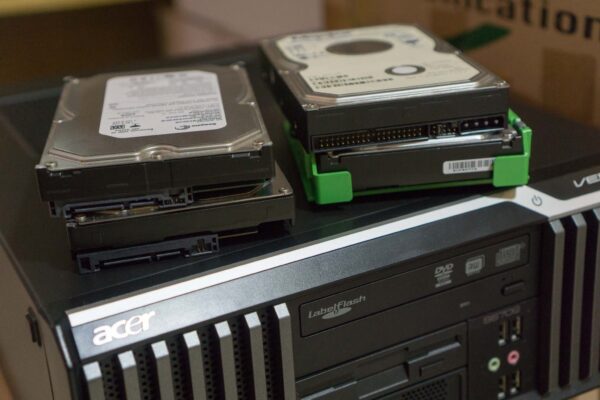
At some point, your computer gets old, and you buy a new one. Then, what do you do with your old computer? Perhaps some people may re-use the hard disks. But if not, then what do you do with them? Do you just dump them in the trash? Do you simply sell your computer, hard disks and all, to someone else?
These days, chucking away your old hard disks may not be a good idea. It never has been, actually, but nowadays privacy and identity theft are bigger problems than they ever have been so it’s something we’ve got to pay more attention to.
At least, not unless you’re sure that all your data has been permanently erased from the disk. That’s actually not as easy as it sounds.
So here’s a public service announcement. Now, those of you who are techie enough to know, then you don’t need to read all these. But for the rest…
Your old hard disk is a treasure trove of all sorts of personal information, including things like passwords and other secrets.
Deleting your files, and formatting your disk, does almost nothing to actually remove anything from the disk, not in the way that prevents a skilled person from recovering its contents.
All those emails in your hard disk is likely recoverable by a skilled person. Is your email on the web? Well, your web browser caches tons of stuff on your disk. Deleting them, again, won’t prevent a skilled person from recovering the contents. Think about other personal documents, photos, list of passwords, bank account numbers and PINs, and various other information you might have stored on your computer.
You really do need a far more robust way of destroying your data. At the very least, you should consider the following steps:
- Wipe the disk data with a tool like DBAN.
- Physically remove and disassemble the hard disk, and physically destroy the disk platters internally using a hammer. Yes, we’re talking about physical destruction here.
- If you happen to have access to a degausser, that’s probably the most convenient thing to do.
Until you’re absolutely sure your data is permanently destroyed, it’s otherwise best to just keep the disk around somewhere until such time you’re able to deal with them properly.
Moving forward, you should consider storing all confidential, sensitive, or private data in an encrypted storage. I’m assuming, of course, we’re talking about one that is legitimately secure. This is really convenient, because destroying the data in this case could be as simple as just forgetting the keys needed to decrypt or access the storage.
On my Macs, for example, I now have FileVault 2 turned on.
Remember, also, that your backups need to be similarly protected, and destroyed when you don’t need them anymore and want to dispose of the media.
1 thought on “Destroying Data”
View Comment Policy